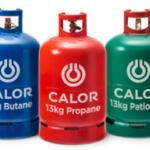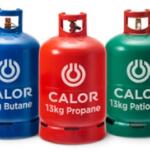

How to store Calor gas bottles
Safely storing gas bottles of any kind is critical to ensure your personal safety and everyone else’s. Therefore, before you go out and buy, it’s a good idea to learn how to look after them.
Tips for storing gas bottles
Always make sure that you handle Calor gas bottles properly. Failing to do so could result in serious injury, fire, and damage to property. Here are some tips for storing gas bottles safely:
- Always store gas bottles upright: When using gas bottles, always ensure that they remain upright unless your appliance allows you to orientate them at a different angle safely
- Don’t store gas bottles near sources of heat: Don’t keep gas near anything that could potentially become an ignition source. Always keep them away from sparks and naked flames.
- Keep gas bottles outside of buildings: Store gas away from buildings’ entry and exit points
- Don’t keep gas bottles near drains
- Don’t keep gas bottles in attics or basements
Things you should never do with gas bottles
There are also some things that you should never do with gas bottles. These include storing gas bottles lying down, storing them below ground level, and using them in places where they are prohibited. For instance, never use gas bottles in high-rise flats where there is a risk of fire.
Furthermore, make sure that you keep gas away from toxic substances that could corrode the exterior metal shell. Never throw a gas bottle onto a fire. It could explode.
Storing gas rules
UK rules state that you can keep two 15 kg propane gas bottles on your property (up to a total of 30 kg) for indoor use. If you keep propane, always keep it outdoors.
If you smell gas at any point, you can call the Calor emergency hotline and report a leak.
Calor gas shelf life
The shelf life of Calor gas itself is unlimited. However, gas bottles may deteriorate over time, requiring replacement.
When storing your gas bottles long-term, keep them away from salt and water to minimise the risk of rust. Experts recommend that you get gas bottles inspected every ten years or so, particularly if you plan on re-using them.
